Princeton Hackathon One of Several Events Marking National Day of Civic Hacking
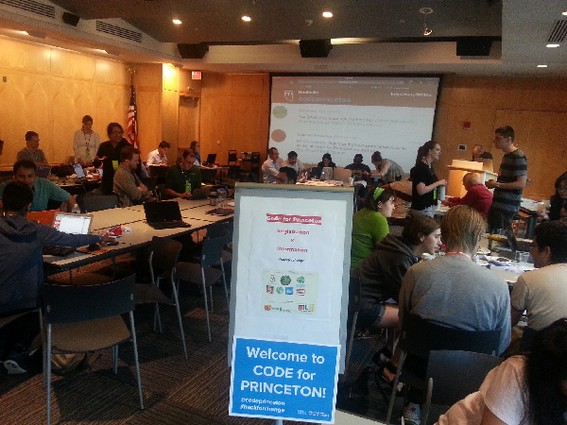
Saturday, June 6, was the National Day of Civic Hacking, sponsored by Code for America. Several of New Jersey’s tech communities answered the call to “build new solutions using publicly released data, technology and design processes to improve our communities and the governments that serve them.” NJTechWeekly.com will be covering the events in Jersey City and Newark in a future article.
One of the events was a hackathon held by Code for Princeton that drew more than 150 developers, designers, makers, community members and students to the Princeton Public Library on June 6 and 7. This was Code for Princeton’s first hackathon.
Seven teams worked on various projects for about 14 hours, going from concept to prototype. The participants received a pep talk and keynote speech from Mike Swift, cofounder and CEO of Major League Hacking, who spoke about how his first hackathon had changed this life.
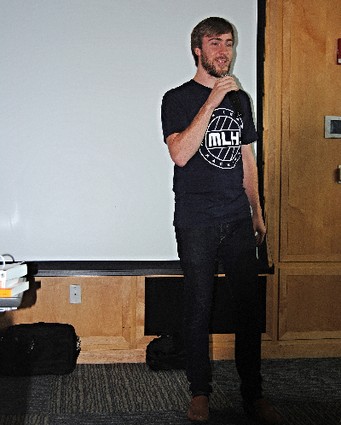
There was also a “Pop-Up Mini Maker Faire” on the plaza outside the library on Saturday. FUBAR Labs (New Brunswick); John LeMasney, of LeMasney Consulting (Princeton); and others brought robots, Raspberry Pis, 3D printers and drones, which attracted dozens of interested community members throughout the day.
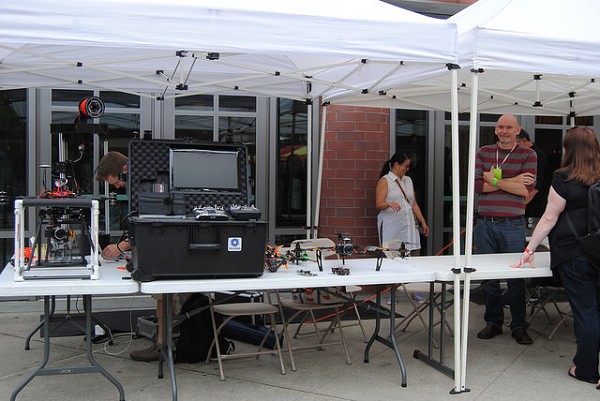
The municipality of Princeton “was really great, and cooperated with us” on opening up some data sets to make them fully available to the community, said Code for Princeton’s storyteller, Claire Balani-Seelinger.
Team “Elections,” led by Kirsten Smith, used Princeton municipal data to create an app for district vote counters, so they could upload vote counts to the town’s website as people are voting. “This will allow an unofficial vote count to get out to the public quickly,” said Smith. The group mapped the Princeton voting districts on a site called OpenStreetMap. Once the vote is counted, it appears on the map. The demonstration page for this project is here. The team won ice cream with Princeton Mayor Liz Lempert.
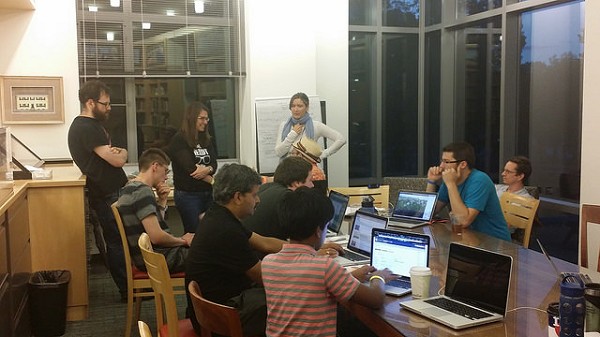
Team “Energy” used data from PSE&G and the Environmental Protection Agency to develop a visualization that analyzes and displays Princeton’s greenhouse gas emissions over time. The team, led by Mike Rickert, created a demonstration website that displays Princeton’s gas and electricity usage and provides information on the impact of energy use by Princeton residents on greenhouse gas emissions. “Another neat feature of that project is you can actually enter your own home’s energy bill and compare your usage to other Princeton residents,” said Balani-Seelinger. The team won a free month’s worth of coworking at Tigerlabs.
Three middle-school students from Montgomery Upper Middle School (Skillman) who had been attending Code for Princeton hack nights formed a team called “Adoption and Volunteering App for SAVE Princeton.”
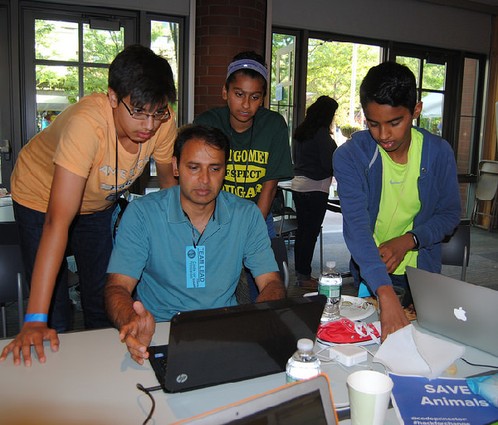
SAVE is a local animal shelter, and the app is a one-stop-shop allowing Princeton residents to get involved with the facility, according to Balani-Seelinger. It allows people to adopt a dog or cat from their phones, donors to see what goods the animal shelter needs, and volunteers to sign up. “They worked on the project before the hackathon and learned JavaScript on their own,” Balani-Seelinger said. “What was really cool was that experienced developers came to the hackathon and mentored them on this project, so they were able to connect the app to the remote data base that had the information about which dogs and cats needed to be adopted.”
The developers who helped the middle-school students with this project were Edderic Ugaddan, Chris McCafferty, and Ken Lyle. One of the fathers of the participating students, Bobby Mathew, was the team’s contact.
Judging the event was Princeton Mayor Liz Lempert; Andrew Erlichson, vice president at MongoDB and member of the Board of Trustees, Princeton Public Library; Lauren Skowronski, program director for community engagement, Sustainable Jersey; Diane Landis, executive director of Sustainable Princeton; Chris Boraski, co-organizer, Princeton Tech Meetup; and Ralph Widner, member of the council of Princeton Future.

